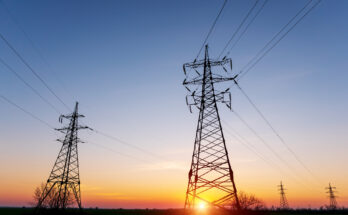It’s not uncommon for people to turn on their heating systems without giving much attention to where their energy originates from or where their money goes. There’s a good chance that millions of Europeans will donate money to the Russian government, much of it to Vladimir Putin’s war fund. Russia has been building a natural gas pipeline network throughout Europe since the 1960s. As a result, the United States has cautioned its Western allies that extra Russian gas would only make Europe more vulnerable to Moscow.
As a retaliation for Europe’s support for Ukraine, the Kremlin is now fearful of cutting off natural gas supplies to the EU, which has been sending weaponry and aid to Ukraine in its struggle against Russia’s incursion. Despite the fact that it has just been a little over a week, Russia has permitted the gas to flow. This, however, brings up a new problem.
Russia earns hundreds of millions of dollars every day from oil and gas exports, undercutting Western financial restrictions designed to stifle Putin’s military effort. That its energy investment has enabled Putin to wage a brutal war on its borders is not lost on the European Union, Russia’s largest gas client. The value of Russian natural gas shipments to the European Union has risen to almost €500 million ($545 million) every day, according to the European research tank Bruegel. That’s up from about €200 million in February. Before the invasion, Russia was also shipping oil to Europe worth billions. Years ago, EU leaders discussed decreasing dependency on Russian gas. Last week, Morawiecki said it bluntly. “The European Union buys a lot of Russian gas and oil. And President Putin takes our money, our money. And he turns this into aggression, invasion,” he reportedly said at an EU conference. Only 40% of the 27-nation bloc’s gas demands are met by Russia. Bruegel reports that Germany is Russia’s largest gas client by country. Russia too needs European cash. Reuters says that Russian oil and gas revenues in 2021 were 9.1 trillion rubles ($119 billion). That was 36% of the budget. Moscow’s overseas reserves have risen to $630 billion, a record high. But Western sanctions have blocked around half of its assets, experts say.
These sanctions are wreaking havoc on the Russian economy, but they haven’t yet targeted fossil fuel exports directly, despite Western governments’ concerns about rising energy costs and the cost of life. Ultimately, they want Russian gas to continue coming. Oil is a different story. While benchmark Brent oil has risen this week, selling at over $115 per barrel on Friday, Russia’s flagship Urals crude has been offered at a $18 discount, indicating that some buyers are avoiding it. Banks and dealers are concerned about falling victim to financial penalties, while shipping firms and insurance are concerned about the danger to tankers in the Black Sea. Furthermore, Europe may get oil from other sources. It will be increasingly difficult to replace Russia’s natural gas.
Turning down the heat may save a lot of gas
Climate activists have long lobbied for a strategy to wean the globe off natural gas, a strong greenhouse gas. It took an energy crisis and a bloodbath in Ukraine to finally wake up the EU. Energy head Kadri Simson said Thursday the EU will unveil its strategy to reduce its dependency on Russian gas and accelerate the use of renewable energy next week. “The Green Deal is the only long-term option, raising renewables and energy efficiency as quickly as feasible. So, we are still much too reliant on fossil fuel imports,” she stated at an IEA news briefing. Since Russia invaded Ukraine last week, Germany has moved its renewable energy objective ahead by five years. The Ukraine conflict has also heightened concerns about the world’s energy use. Experts say Europe can replace part of Russia’s gas supply, but not all of it. Even later, fully replacing Russian gas will be tough. Europeans might reduce their thermostats, according to IEA Executive Director Fatih Birol. According to an IEA 10-point plan to reduce dependency on Russian gas, the EU could save 10 billion cubic meters of gas if all buildings turned down the heat by only 1 degree Celsius. That’s about the same as New York City uses in three months, or Hungary uses in a year. Asking individuals to do this would be a last option, according to Bruegel’s climate and energy researcher Ben McWilliams.
“Who knows?” It’s a first. Imagine a political campaign by European politicians asking people to support them by turning down their thermostats by one degree. I see people rallying against Russian gas,” he remarked. “But eventually, you’ll need more.” McWilliams suggests repurposing half the gas. The US already ships LNG to Europe, and EU authorities are turning to Azerbaijan and Qatar. As Europe prepares for the coming winter, the other half will have to come from lowering demand. Heavy sectors like steel and chemical manufacturing will have to scale down. Solar panels and heat pumps might help relieve demand on heating systems.
Tara Connolly, a gas campaigner with the worldwide NGO Global Witness, believes that Europe needs to start an emergency program to insulate houses, replace gas boilers with heat pumps, and expedite the transition to renewable energy. “It is patently evident that Europe’s reliance on gas has supplied Putin with the resources to participate in his deadly endeavor in Ukraine, while impeding Europe’s reaction,” she added. “This moment has shown that not only are fossil fuels wreaking havoc on the environment, but they are also leading to a more volatile and dangerous world.”





